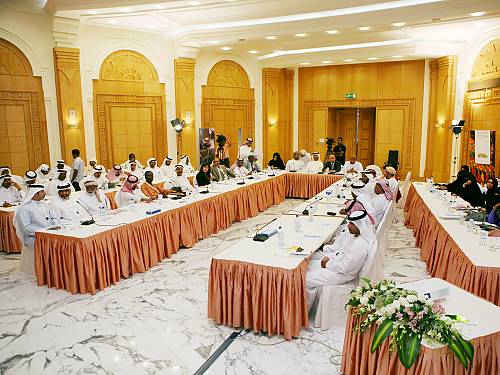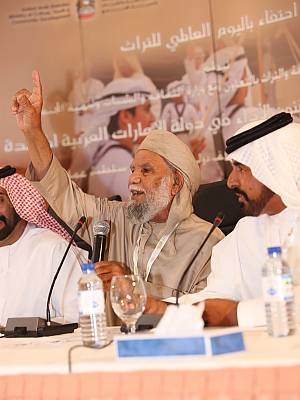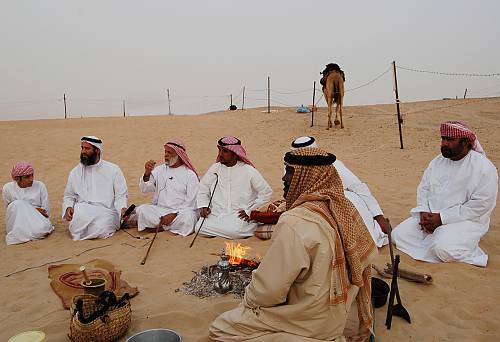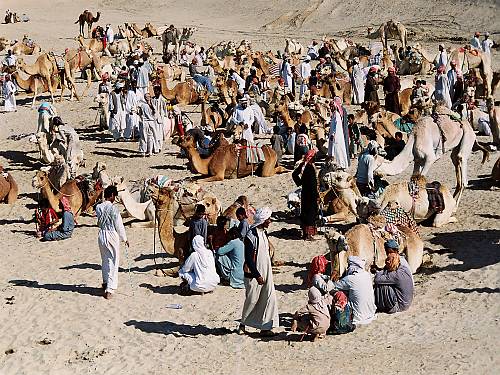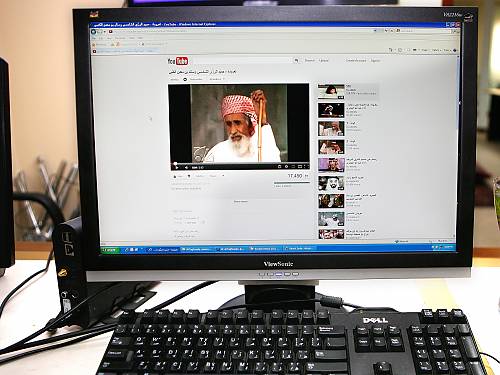Al-Taghrooda, traditional Bedouin chanted poetry in the United Arab Emirates and the Sultanate of Oman
Inscribed in 2012 (7.COM) on the Representative List of the Intangible Cultural Heritage of Humanity

Al-Taghrooda traditional Bedouin chanted poetry is composed and recited by men travelling on camelback through desert areas of the United Arab Emirates and the Sultanate of Oman. Bedouins believe that chanting entertains the riders and stimulates animals to walk in time. Short poems of seven lines or less are improvised and repeated between two groups of riders often as antiphonal singing. Generally the lead singer chants the first verse and the second group responds. Poems are also chanted around campfires, at weddings, and at tribal and national festivities, particularly camel races, and some Bedouin women compose and chant while engaged in collective work. The most important aspect is the social bonding during the oral exchange of verses. Themes include sending messages to loved ones, relatives, friends or tribal chiefs. It is also a medium for the poet to pass comment on social issues. Other functions include settlement of disputes among individuals or tribes, highlighting historical achievements, and contemporary themes such as good driving practice and health issues. Performances also provide a chance for audiences to learn about their past history and have a glimpse of their traditional way of life. The ability to compose and chant poems is transmitted through the family and by community elders.
